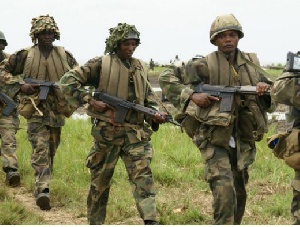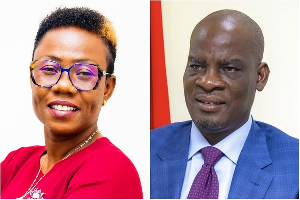The West Africa Network for Peace-building (WANEP) on Thursday advised politicians to desist from politicisation of chieftaincy and ethnicity in the country, especially in the north, which has the potential to ignite the flames of conflict.
"The politicisation of ethnicity and chieftaincy especially in the northern part of the country is seen as potential source of destabilisationâ€, said Mr Chukwuemeka B. Eze, Programmes Director of WANEP-West Africa at the opening of a two-day workshop for security agencies in Tamale on the need to promote early responses from security agencies to community conflicts before they escalate. It was part of efforts to ensure that the country conducted a violence-free election in December so that Ghana would continue to be a model of democracy in Africa.
Mr Eze said other problems such as illegal smuggling of arms across porous borders, maritime crimes and piracy continued to be a threat to the citizens and communities, which had been attributed to the increased dimension and gruesome nature of ethno-religious, communal and political conflicts. According to him the rapidity and simultaneous occurrence of these conflicts overwhelmed the limited resources of security operatives of States and other agencies and that the current scenario raised concerns including fear of insecurity among communities in West Africa who are continually foisted with the responsibility of self-protection for their lives. He stressed the need for a collaborative approach to early warning and early response mechanisms so that community drivers would proactively compliment efforts towards conflict prevention.
Mr Justin Bayor, National Coordinator of WANEP-Ghana advised the security agencies to remove their security caps and foster collaboration to look at conflict and violence from the civilian perspective for positive resolution. He said promoting peace in 2012 was a shared responsibility and that WANEP-Ghana with the support of various donors implemented a number of projects and activities that geared towards reducing violence in the country.
He said WANEP was working with the media, the youth of various political parties, various women’s groups and communities to promote the culture of non-violence in their communities.
Mr Bayor said one key area that WANEP was actively and deeply involved was the promotion of violence prevention in some noted hotspots before, during and after the elections.
He indicated that WANEP-Ghana had strengthened its early warning capacity by rolling out a new and more robust data gathering systems, expanded its data gathering capacity through the involvement of the public while their community based monitors were trained to report on signals of violence.
Mr Moses Mabengba, Northern Regional Minister in a speech read on his behalf commended WANEP for its numerous peace-building initiatives, which had helped reduced the tension in the Northern Region and pledged that the RCC would continue to partner and collaborate with WANEP for conflict resolution.
General News of Saturday, 10 November 2012
Source: GNA
Politicizing ethnicity and chieftaincy is recipe for conflicts -WANEP
Entertainment











